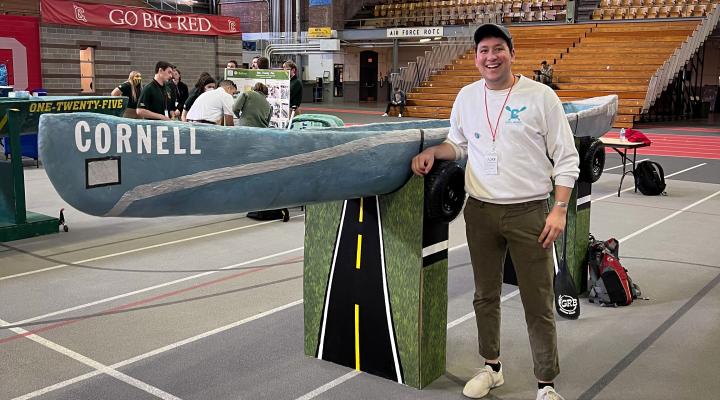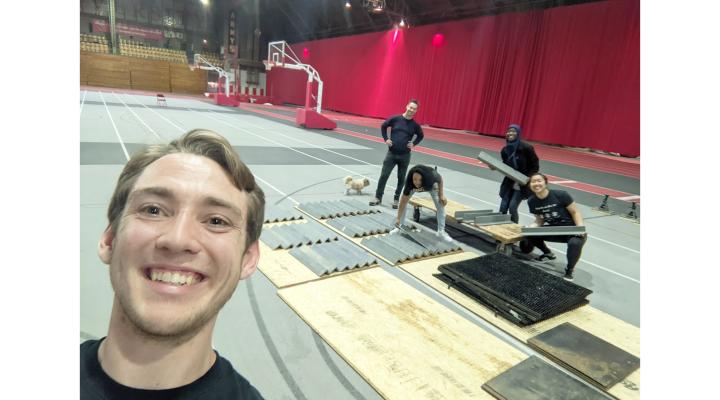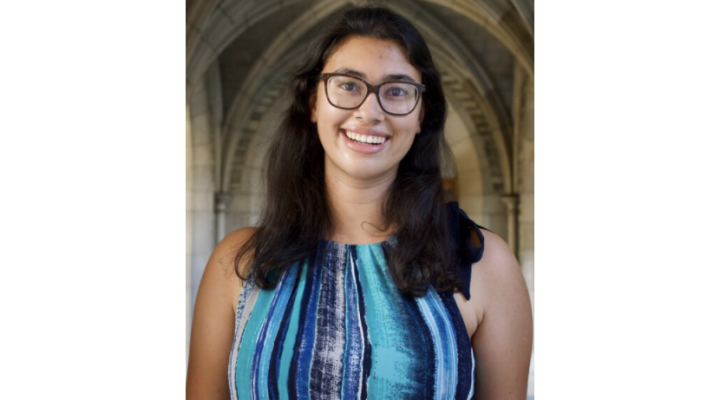Why did you originally choose Cornell?
I chose Cornell because of the positive reputation of both the Engineering College and of my now-advisor, Professor Ingraffea. Part of my research into different graduate programs involved reading faculty biographies, and Professor Ingraffea’s biography and research interests in fracture mechanics definitely caught my attention.
What is your research project?
The focus of my research is to understand the physics and mechanics of cracking processes in metallic materials/structures and to ultimately try and simulate or predict these cracking processes at various length scales. The findings and tools that I develop through my research can be used in advanced structural-prognosis technology—essentially to make smarter, safer, and more reliable structures. I have been at NASA Langley Research Center for the past two years conducting physical experiments to support my numerical modeling efforts once I return to Cornell.
What are some of your extracurricular activities?
I am a member of the NASA Speakers Bureau, through which I speak to young students at schools or other events to try and motivate them to pursue careers in STEM fields. I also play recreational volleyball and squash, and I try to go hiking or just be outside whenever I get a chance.
What are your plans after graduation?
I will explore whatever opportunities are available, including postdoctoral or faculty positions.
What are your greatest accomplishments?
I think the summation of many smaller accomplishments has lead to the greatest accomplishment of all, which, for me, is the realization that I can do many things that my five-years-ago self would have never thought possible (e.g. writing substantial computer programs, designing and running physical experiments, publishing papers, writing successful research proposals, etc.).
What are some of your daily duties at NASA?
My duties vary day-to-day, depending on the schedule and progress of my experiments. For example, I might do mechanical testing two days during a week and then spend the next several days looking at specimens using a scanning-electron microscope. Another week, I might be analyzing data and fracture-surface micrographs at my computer or documenting the research findings to date.
How do you think things will change once you return to Cornell after finishing your time at NASA?
Personally, I have matured and have gained a tremendous amount of confidence in my research abilities since I have been at NASA. I have also networked with many, many people, and I hope to maintain those ties once I leave. From a research standpoint, I will use the physical data and observations that I’ve collected at NASA to inform the numerical models that I will build once I return to Cornell.




